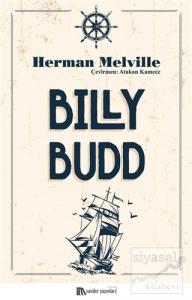
‘Struck dead by an angel of God! Yet the angel must hang!'
It is the end of the eighteenth century, and the navy recruits the eponymous hero – the ‘Handsome Sailor' – to its fleet. Accused of mutinous behaviour, Billy Budd is forced to defend himself, but his fearful, silent response soon gives way to a terrible act of violence. The consequences are disastrous, and nothing can prevent the force of judgment and eventual justice upon him. Discovered among Melville's papers after his death and published posthumously in 1924, ‘Billy Budd' is a powerful tale of guilt and innocence, crime and punishment, and the cost of adhering to duty.
From the author of ‘Moby Dick', Melville's allegorical tales are loaded with symbolism, and showcase his distinctive writing style and themes in shorter form.
‘Struck dead by an angel of God! Yet the angel must hang!'
It is the end of the eighteenth century, and the navy recruits the eponymous hero – the ‘Handsome Sailor' – to its fleet. Accused of mutinous behaviour, Billy Budd is forced to defend himself, but his fearful, silent response soon gives way to a terrible act of violence. The consequences are disastrous, and nothing can prevent the force of judgment and eventual justice upon him. Discovered among Melville's papers after his death and published posthumously in 1924, ‘Billy Budd' is a powerful tale of guilt and innocence, crime and punishment, and the cost of adhering to duty.
From the author of ‘Moby Dick', Melville's allegorical tales are loaded with symbolism, and showcase his distinctive writing style and themes in shorter form.






























